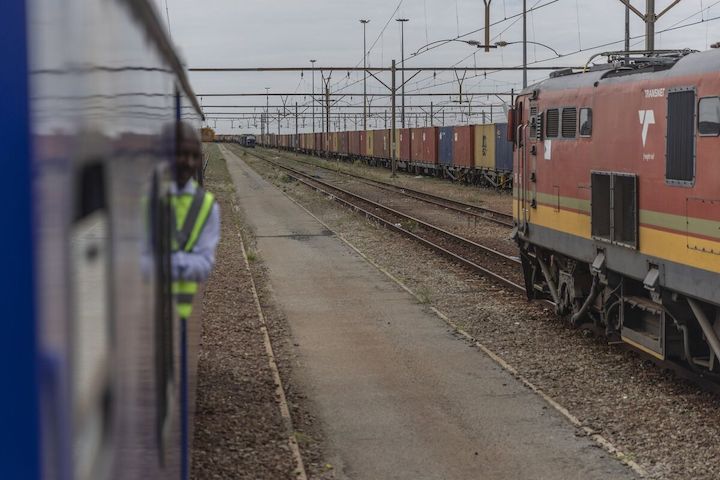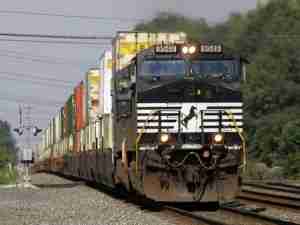South Africa has asked companies to help it set up an office to facilitate the entry of private operators onto the continent’s biggest rail network for the first time.
In a letter sent last month to Business Unity South Africa, the Department of Transport asked the country’s biggest corporate lobby group to help set up a private-sector participation office. It also asked BUSA to “support concessioning and investment in freight and passenger networks.”
The department asked whether companies would “be in a position to help them set up a unit,” said Khulekani Mathe, chief executive officer-designate at Busa. “We will produce the capacity to populate it and then have nothing to do it.”
The transport department didn’t respond to a request for comment.

The overture to the private sector over reviving the moribund rail industry is the latest attempt by the South African government to rope in corporate skills in a bid to kick-start collapsing government services ranging from electricity provision to water supply.
“The openeness with which the department is approaching this, with a willingess to take help from the private sector, is not something we have seen before,” Mathe said.
South Africa’s freight-rail services, run as a monopoly by state-owned Transnet SOC Ltd., have deteriorated to the point where iron ore is piling up in stockpiles at mines and coal railings to ports are at a 30-year low. That’s slashed earnings for companies including units of Anglo American Plc and Glencore Plc. It’s also resulted in a lower tax take for the cash-strapped government.
The government has produced a strategy — the Freight Logistics Roadmap — to reform rail and port services and Transnet last month published a document detailing how it envisages private companies operating its network.
That document, which is open for public comment, has attracted criticism from miners and other companies reliant on rail as it aims to allow private operators to book slots for a period of one year, which then need renewing, rather than having access for longer periods. Longer access would encourage infrastructure investment.
Late last month, BUSA wrote to its members asking them to submit proposals to it on how the rail network — or segments of it — could be run, in addition to seeking help to start the PSP office. The deadline for the proposals is April 19.
A number of unsolicited bids “have been submitted to Transnet,” the Department of Transport said in its earlier letter. “These PSP initiatives need screening and prioritizing but can be made market-ready within a year through the establishment of a sector-specific PSP unit.”
Bankable Opportunities
The transport department said the unit will need transaction advisers as well as legal and technical experts to set up “bankable PSP opportunities.”
Mathe said government envisages the unit running along the same lines as an office that’s run bids for private power provision, and secured well over 200 billion rand ($10.7 billion) in investment.







